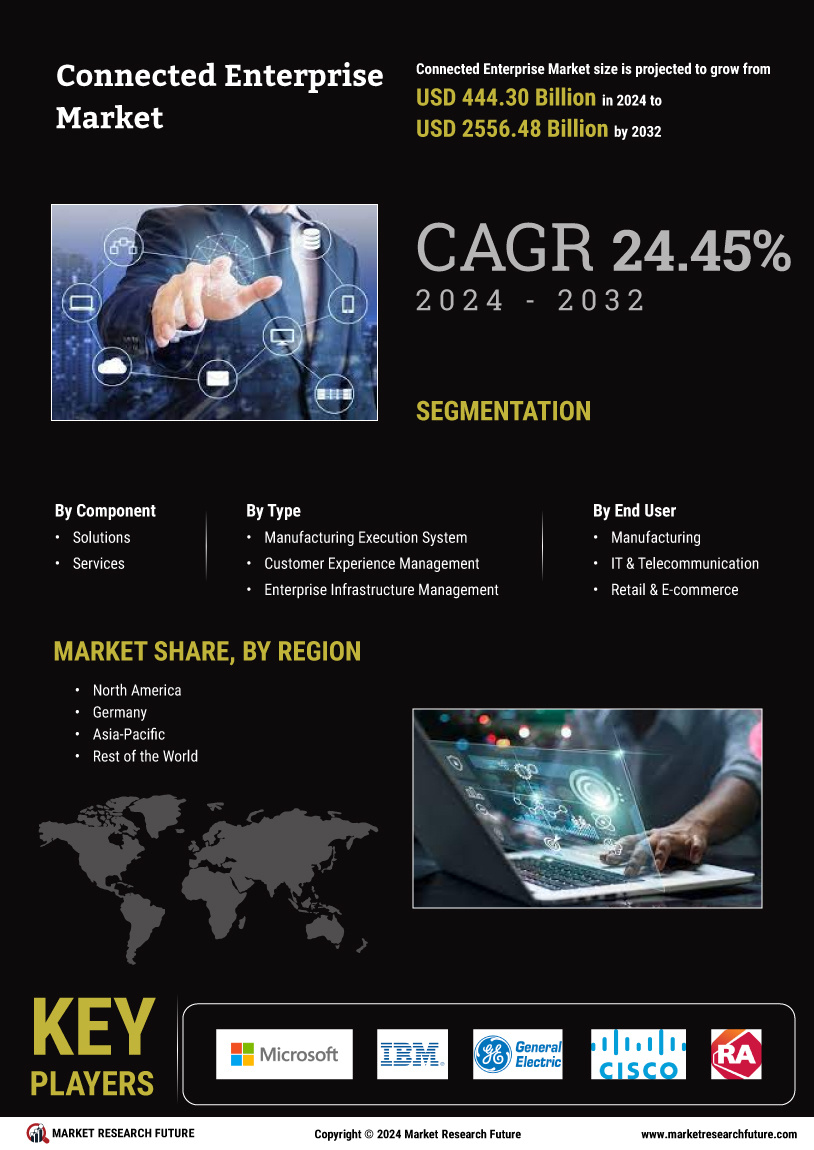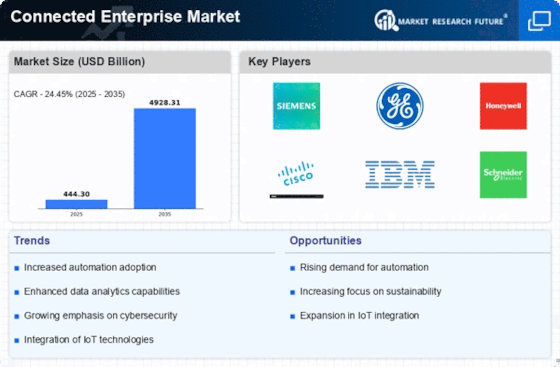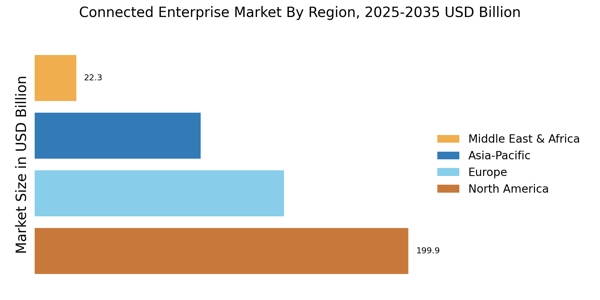Integration of 5G Technology
The rollout of 5G technology is set to revolutionize the Connected Enterprise Market by enabling faster and more reliable connectivity. This advancement facilitates the seamless integration of IoT devices, allowing for real-time data exchange and enhanced operational efficiency. With 5G networks expected to cover a significant portion of the population by 2026, enterprises are likely to leverage this technology to optimize their operations. The increased bandwidth and reduced latency associated with 5G can support a multitude of applications, from smart manufacturing to remote monitoring. As organizations seek to harness the full potential of connected devices, the Connected Enterprise Market is likely to experience accelerated growth, driven by the demand for high-speed, low-latency communication solutions.
Rise of Remote Work Solutions
The shift towards remote work solutions has catalyzed the Connected Enterprise Market. Organizations are increasingly adopting technologies that facilitate seamless communication and collaboration among distributed teams. This trend is evidenced by a reported increase in the use of cloud-based platforms, which are projected to grow at a compound annual growth rate of 22% through 2026. As businesses seek to enhance productivity and maintain operational efficiency, the demand for integrated systems that support remote work is likely to surge. Consequently, the Connected Enterprise Market is witnessing a transformation, as companies invest in tools that enable real-time data sharing and project management across various locations. This evolution not only enhances employee engagement but also drives innovation in service delivery, thereby reshaping the competitive landscape.
Increased Focus on Cybersecurity
As enterprises become more interconnected, the emphasis on cybersecurity within the Connected Enterprise Market has intensified. Organizations are recognizing the vulnerabilities associated with digital transformation and are investing heavily in robust security measures. The Connected Enterprise Market is projected to reach USD 345 billion by 2026, reflecting a growing awareness of the need to protect sensitive data and maintain operational integrity. This heightened focus on cybersecurity is likely to drive the adoption of advanced security solutions, including encryption, multi-factor authentication, and threat detection systems. Consequently, the Connected Enterprise Market is evolving to incorporate security as a fundamental component of enterprise architecture, ensuring that businesses can operate securely in an increasingly digital landscape.
Advancements in Artificial Intelligence
Artificial Intelligence (AI) is playing a pivotal role in the evolution of the Connected Enterprise Market. The integration of AI technologies into enterprise systems allows for enhanced decision-making processes and operational efficiencies. For instance, AI-driven analytics can process vast amounts of data, providing insights that were previously unattainable. The market for AI in enterprise applications is expected to reach USD 190 billion by 2025, indicating a robust growth trajectory. This surge in AI adoption is likely to empower organizations to automate routine tasks, optimize supply chains, and improve customer experiences. As enterprises increasingly rely on AI to drive strategic initiatives, the Connected Enterprise Market is poised for significant transformation, fostering a more agile and responsive business environment.
Growing Demand for Sustainable Practices
The emphasis on sustainability is becoming increasingly prominent within the Connected Enterprise Market. Organizations are recognizing the importance of adopting sustainable practices to meet regulatory requirements and consumer expectations. This shift is reflected in the growing investment in technologies that promote energy efficiency and reduce carbon footprints. The market for sustainable technologies is projected to reach USD 1 trillion by 2025, indicating a significant trend towards eco-friendly solutions. As enterprises strive to enhance their sustainability profiles, the Connected Enterprise Market is likely to see a surge in the adoption of green technologies, such as renewable energy systems and waste reduction initiatives. This focus on sustainability not only aligns with corporate social responsibility goals but also enhances brand reputation and customer loyalty.


















